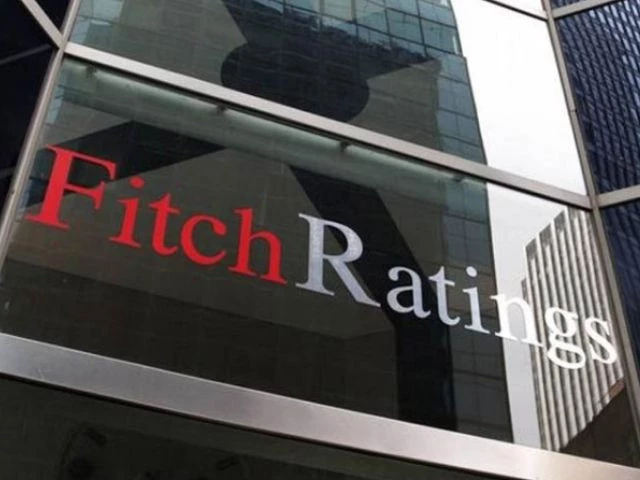Fitch upgrades Pakistan’s credit rating from CCC+ to B-
This marks Pakistan’s first upgrade in nearly six years.

Fitch Ratings has upgraded Pakistan’s Long-Term Foreign-Currency Issuer Default Rating to 'B-' from 'CCC+', citing stronger fiscal consolidation efforts and improving external stability.
This marks Pakistan’s first upgrade in nearly six years. The outlook has been revised to stable, last seen in 2018.
The rating agency pointed to increased confidence in Islamabad’s ability to narrow budget deficits and pursue structural reforms under its International Monetary Fund (IMF) programme.
Fitch highlighted that while tight economic policies should help rebuild international reserves, financing needs remain significant.
Global trade risks and security challenges, particularly near the Afghan border and in Balochistan, also weigh on the outlook.
In March, Pakistan secured a staff-level agreement with the IMF on its $7 billion Extended Fund Facility and a new $1.3 billion Resilience and Sustainability Facility, both extending to mid-2027.
The country met key targets on reserves and primary surpluses, though tax revenue underperformed.
The agency forecasts Pakistan’s budget deficit to shrink to 6% of GDP in the fiscal year ending June 2025, down from nearly 7% a year earlier.
The primary surplus is expected to more than double to over 2% of GDP.
Government debt fell to 67% of GDP in FY24, from 75% a year earlier, and is projected to gradually decline in the medium term.
However, Fitch noted the debt ratio would edge up in FY25 due to a sharp drop in inflation before resuming its downward trajectory.
Consumer inflation is forecast to average 5% in FY25, from over 20% in the previous two years, on the back of fading base effects from energy price reforms.
External accounts showed improvement, with a current account surplus of $700 million in the first eight months of FY25, supported by strong remittances and lower import costs.
Gross reserves rose to nearly $18 billion in March 2025, covering around three months of imports, compared to $8 billion in early 2023.
Despite the positive outlook, Pakistan faces $8 billion in external debt repayments in FY25 and $9 billion the following year, excluding routinely rolled bilateral loans.
The government secured $4 billion in external financing in the first half of FY25 and aims to raise $10 billion more by year-end.
Fitch maintained concerns over Pakistan’s weak governance, assigning it the lowest ESG governance score, citing fragile institutional quality and the rule of law.
PM and FM welcome the development
Prime Minister Shehbaz Sharif and Finance Minister Muhammad Aurangzeb have welcomed the upgrade of Pakistan’s credit rating by global agency Fitch Ratings, which raised the rating from CCC+ to B- and marked the country’s economic outlook as ‘stable’.
The Prime Minister called it a sign of economic progress and growing global confidence in Pakistan’s economy.
The Finance Minister termed the move a validation of the government’s reform agenda, stating it will encourage investment, boost trade, create jobs, and support industrial growth. Both leaders reaffirmed their commitment to further strengthening the national economy.






















COMMENTS
Comments are moderated and generally will be posted if they are on-topic and not abusive.
For more information, please see our Comments FAQ